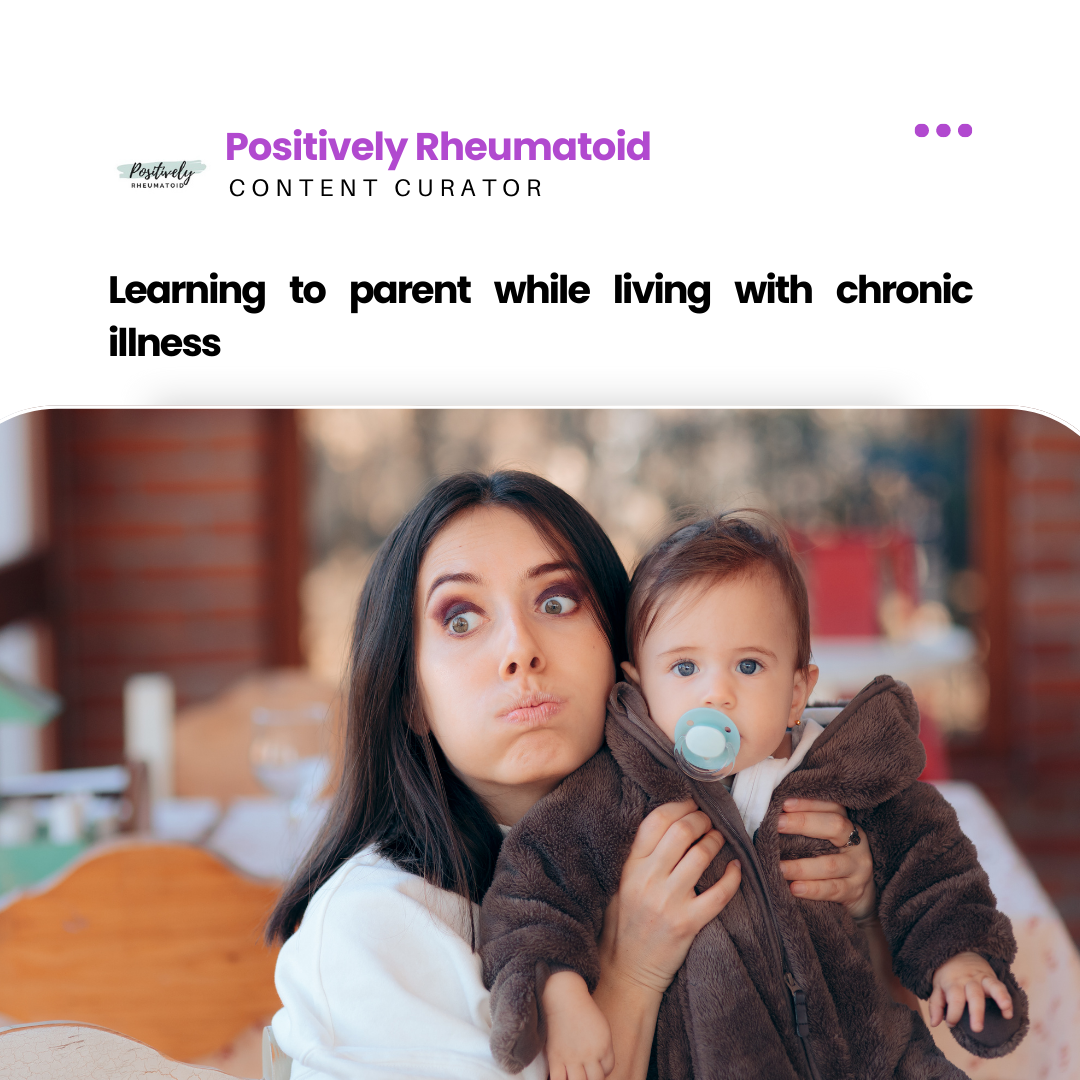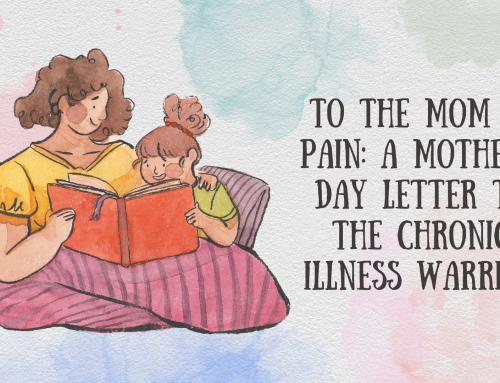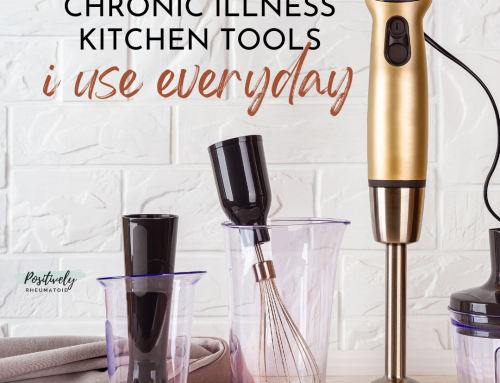Parenting with RA is a challenge, but you can do it!
How to talk about your RA in a way kids can understand.
 Kids are curious, and they’re going to ask a lot of questions. But as parents, it can be hard to know what kinds of answers will be most helpful. One thing that’s important is making sure your child understands what RA is and how it affects you. It’s also crucial that you explain how RA affects your daily life—including everything from the physical pain you experience to the mood swings that may come with RA flares.
Kids are curious, and they’re going to ask a lot of questions. But as parents, it can be hard to know what kinds of answers will be most helpful. One thing that’s important is making sure your child understands what RA is and how it affects you. It’s also crucial that you explain how RA affects your daily life—including everything from the physical pain you experience to the mood swings that may come with RA flares.
Explaining these things in an age-appropriate way is key; for example, if your child has never heard about arthritis or rheumatoid arthritis before and asks what it means, tell him/her that “arthritis” means “joints hurt.” Then explain that since his/her mommy has “joints hurt,” she sometimes feels very tired when her joints hurt too much (or something along those lines).
Of course, no two people have the same experience with RA. But by explaining it to your kids in a way they understand, you can give them an understanding of their own—one that will help them be understanding and supportive when you need them most.
The challenges of parenting with RA.
Being a parent is hard, and parenting with RA is even harder. You might feel like you’re not as present and attentive as you used to be—after all, it can be difficult to keep up with all the usual responsibilities of being a mom or dad when your joints are in pain, or you are fatigued, and you have to take daily medications that make you tired. But don’t worry: there are plenty of ways for parents with RA to stay involved in their children’s lives, even if they have limitations due to their disease.
The most important thing is being positive about your condition because that attitude will rub off on your child. If they see that Mommy or Daddy isn’t letting the RA get them down, they’ll learn how important it is not to let life’s little challenges get them down either (and that’s good advice for anyone!). Another thing I’ve found helpful when talking about my RA with my kids (ages 9 and 12) is explaining what it means for me specifically; describing how things work when we out together help give them some context for what I’m going through at home too.
Supporting your child from within when you have RA.
When you have RA, your child may feel like they need to take on a lot of responsibilities. They might think they’re the only ones who can help with chores because you can’t do them anymore. Or they might feel like they need to take care of you when they see how much pain and stiffness you’re in. This can be difficult for both of you—but it doesn’t have to be! Here are some ways to support your child:
- You’re not alone in this journey—we’re here for each other! And there are many resources available through The Arthritis Foundation that can help provide support and resources for both parents and children affected by arthritis (for example, check out their website here).
- Let your kid know that you appreciate their willingness to help out around the house, but let them know that it’s okay if things don’t get done on time or exactly how he or she would want them done. You don’t want him or her feeling overwhelmed or overworked because there is no way anyone could always match up with his/her expectations! Plus, if he/she feels frustrated, it may lead to frustration with himself/herself which wouldn’t be healthy either…so just remember not everything needs perfection–just try being happy 🙂
Parenting with chronic illness sometimes feels impossible.
![]() As a parent, you are your children’s most important role model. Your kids will look up to you and want to be like you. You can use this opportunity to show them how hard work pays off, how important it is to stay healthy, how much fun it is when we all work together as a family and community, and so much more! You can teach them about RA by showing them that it’s not always easy or fun, but it’s worth doing because they have such a great mom/dad who works hard every day just so she/he can keep being there for her/his loved ones — no matter what challenges come along!
As a parent, you are your children’s most important role model. Your kids will look up to you and want to be like you. You can use this opportunity to show them how hard work pays off, how important it is to stay healthy, how much fun it is when we all work together as a family and community, and so much more! You can teach them about RA by showing them that it’s not always easy or fun, but it’s worth doing because they have such a great mom/dad who works hard every day just so she/he can keep being there for her/his loved ones — no matter what challenges come along!
You may find that having children forces you to take better care of yourself with daily medications or physical therapy sessions because having healthy kids means less stress on everyone involved.
Children also have a lot to learn from their parents. Even though they may not fully understand everything being said at first, it’s important for them to hear about RA as early as possible so they can grow up knowing the facts. We hope that you’ve learned a few things about how to parent with rheumatoid arthritis by reading this article. Comment on our post with any tips or tricks you have for parenting during a flare.







Leave A Comment